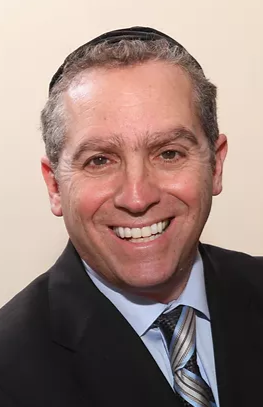
This Parasha begins by discussing Nedarim. The closest word to describe a Neder is a vow. When someone makes a Neder it becomes as binding as a Commandment of the Torah, to the point where if the Neder is violated, there is a court-imposed penalty. For instance, if a person takes a Neder to abstain from drinking wine, the wine now takes on the same status as eating pork. The vow’s prohibition can be considered as having, for that person, a new Halachic status.
The Parasha begins: "Moshe spoke to the heads of the tibes of Bnei Yisrael, saying: This is the thing that Hashem has commanded: If a man makes a vow to Hashem or swears an oath to establish a prohibition upon himself, he shall not desecrate his word, according to whatever comes from his mouth, he shall do." Why does it say that Moshe spoke to the heads of the tribes? The answer is that they have to set an example for the people. We also learn from this that Nedarim are a very serious matter and that we cannot take them lightly.
The closest we come to a Neder today is when we make a donation pledge. Many times those pledges are made when we have an Aliyah and are standing by the Sefer Torah. When we perform a Mitzvah it is said that we create an angel, and that angel will advocate for us in Shamayim. So when we make a pledge to give a donation, we are creating half an angel, and that angel is not fully completed until we pay what we promised. Our Rabbis teach us that these half-completed angels cannot help us and in fact, they can do the opposite and hurt us.
We must make it our business to always honor our pledges, thereby keeping our Neder. In order to protect ourselves, it is recommended that we say “Bli neder” when we make a pledge; that is, without a vow. We should be in the practice of saying “Bli neder” after pledging to make a donation or making any promise that could be considered a Neder.
The Parasha then discusses Nedarim in terms of a man’s wife or his daughter under twelve. In Passuk 6 it states: "But if her father restrained her on the day of his hearing, all her vows or prohibitions that she established upon herself shall not stand; Hashem will forgive her, for her father had restrained her." Rashi comments that this refers to a girl who made a Neder but didn’t know that her father had revoked it. Then she purposely violated the Neder. Technically she didn’t sin because there was no Neder at the time, since her father had revoked it, but she still requires forgiveness and atonement.
The Rabbis compare this to a person who meant to eat unkosher food. For example, if someone had a desire to eat a hot dog from a street vendor who is not known to sell kosher food, but by chance the hot dog he ate was actually kosher, no sin was committed. Even though in the end the meat was kosher, and no sin was committed, he still would need atonement for his intention to sin.
Later in the Parasha, in Perek 32, Passuk 16, we are told that the descendants of Gad and Reuven said to Moshe that before going to war, “We will build pens for the flocks of sheep and cities for our small children." The phrasing suggests that they are giving priority to their flocks over their children. It is asked, Why would they do this? In Passuk 24, Moshe criticizes them by reversing the order of the words they used:"Build for yourself cities for your small children and pens for your flock, and what has come from your mouth shall you do."
We may be guilty of the same thing with our own children. At the time of the Pidyon Haben the Kohen will ask the father "Do you want the money or your son?" Naturally, it is not a question that is meant to indicate an actual real-life choice, and the Kohen would refuse to redeem the child if the father (in theory, though this would never happen) said he preferred the money. The question is intended to send a message to the father about his duties as a parent and how he must always put his child first.
But as children grow up, many fathers work very hard and don’t give the proper time to their children; and the implication could be drawn that they are putting their money ahead of their children. Many children today lack a good relationship with their parents because their parents are busy all day at work. Then when the parents come home, they bring their work with them and spend their free time on emails and cell phones and so on. The children grow up with a lack of proper guidance and attention. They then look elsewhere for that missing attention, for example, on the streets. This can only lead them to trouble!
There’s a famous modern-day parable about the son of a lawyer who asked his father:"Dad, how much do you charge for an hour of your legal services?" The father replied: "I charge $150 an hour son: why do you ask?" The son answered: "Because I have saved up $150, so can I now have an hour of your time?"
As Rabbi Mendel Kalmenson tells us, “In addition to their advantage over adults in terms of spiritual innocence and purity, and the resulting added power of their prayer, in Jewish tradition children are seen to have a greater spiritual sensitivity as well.” It is therefore even more of a missed opportunity not to take advantage of a child’s openness to learning and teach them good values.
Our children didn’t ask to be brought into a world with so many difficulties, and now that they are ours, we must provide them with the best opportunities to achieve growth and happiness. We must teach them discipline and give them good self-esteem by praising their accomplishments so that they will grow to be respectful and upstanding contributors to society, Beezrat Hashem! Amen!
May we all be very cognizant of the words that we say so that we don’t make any Nedarim we cannot keep. We should always remember to pay our donations or at least say “Bli neder” when making a donation so we don’t create half-angels. May we also know our priorities by putting our children’s best interests above our business interests, because the time that we invest in our children is an investment that is everlasting as opposed to our business which is only temporary.
Parasha perspective By Jack E. Rahmey from the teachings and guidance of Rabbi Amram Sananes.








